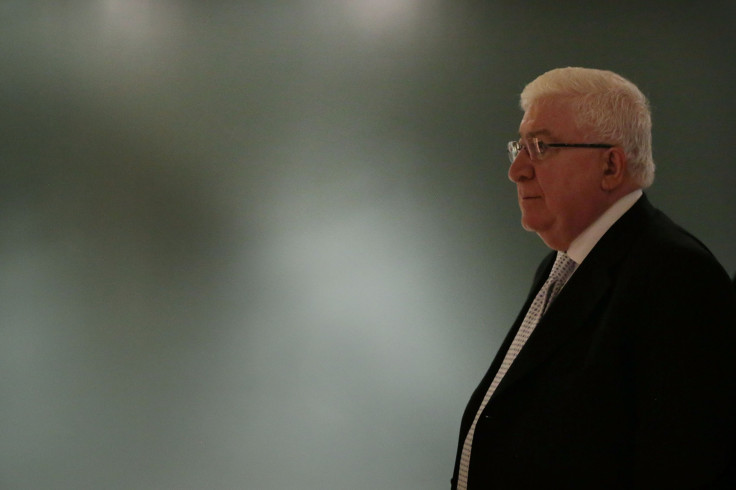Iraqi President Fuad Masum: US, Iraq In 'Strategic Partnership' To Fight ISIS Militants Who Want To 'Control The World'

The United States and Iraq are in a “strategic partnership” to combat Islamic State group militants in Iraq, Syria and eventually “the whole area," according to Iraqi President Fuad Masum. A veteran Kurdish politician, Masum was elected president by the parliament in July with the mandate of creating a unified Iraqi government. The new government should be completed by Eid al-Adha, the Muslim holiday marking the end of Hajj, or pilgrimage season, in early October.
The Obama administration has repeatedly stressed the importance of a unified Iraqi government in the fight against the militant group formerly known as the Islamic State of Iraq and Syria. Iraq has been in the throes of sectarian conflict since the U.S.-led an invasion to oust Saddam Hussein in 2003. Iraq’s minority Sunni population has been under fire from Shia militias with ties to the government, and its Kurdish population is under attack from the Sunni militants in ISIS.
“There seems to be some understanding that the minister of defense should be Sunni and the minister of interior should be Shia, so the search is on for an independent Shia,” Masum said at the Council on Foreign Relations in New York on Friday.
Earlier this summer Kurdish leader Massud Barzani said that Iraq’s Kurds would hold an independence referendum, but Masum said Friday that forming a Kurdish state is a “project” and that “today, there is no possibility to announce such state.” Kurds will be part of the Iraqi cabinet, Masum said.
Sunni tribes will each have their own National Guard, Masum said. Despite their rocky relationship with the former Shia-dominated Iraqi government, the new president does not believe there is any danger that they would support ISIS.
“ISIS does not defend Sunnis; they occupied the Sunnis,” Masum said, speaking of the city of Mosul, known to have a largely Sunni population.
ISIS entered Iraq and seized Mosul earlier this summer and has since seized numerous towns on its way to Baghdad. When the militants threatened to eradicate a large portion of Iraq’s Yazidi minority, the U.S. began an air campaign to avoid what the Obama administration called a “humanitarian crisis.”
Earlier this month President Obama announced that he would expand U.S. efforts in Iraq. The partnership involves over 1,200 U.S. troops on the ground, sent to assist an Iraqi military that had been “moving from failure to failure,” since the Hussein regime and “weapons that Iraq is buying from the U.S.,” Masum said. The Iraqi army was largely criticized for defecting from their posts when ISIS entered Mosul.
“The makeup of the Iraqi army was not a successful composition. There was much corruption that existed, I have to admit this,” he said. The army is also smaller than some Western observers have indicated, since many soldiers are “fictitious names” on a list used only to collect salaries.
Masum emphasized several times in his address that Iraq’s only concern with regards to Syria is ISIS, not the regime of President Bashar Assad. He added that the U.S.-led coalition’s military operations in Iraq “were an excellent start” against the militant group, which "does not represent Sunnis, it does not represent Shias, it does not represent anyone. If they could control the world, they would.”
© Copyright IBTimes 2024. All rights reserved.






















